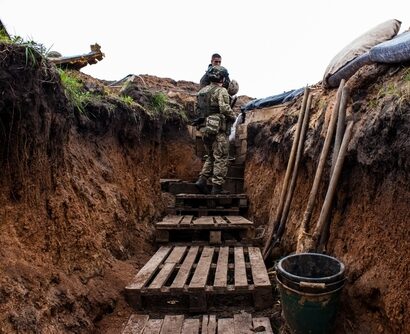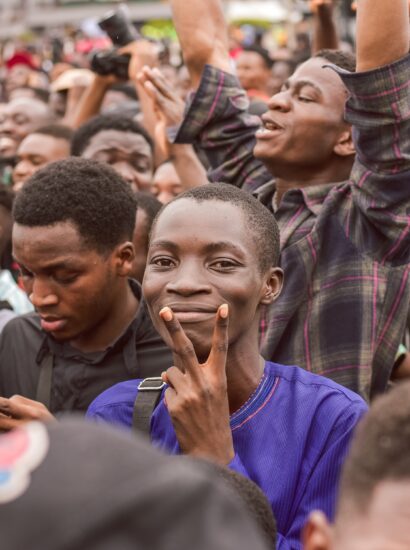Abstract: One of the most prominent discussions in international relations scholarship is focused on how domestic agendas affect countries’ attitudes, behaviour, and policy projections. Many branches of liberalism and constructivism influence our social life, evaluative practices and judgments, as well as the civic process of norm-formation. Alternatively, the realist schools do not regard social practices as having legitimate significance in international politics. Realists opt for a security-first paradigm given the institutional inefficiency and lack of assertive force behind international norms. For realists, what explains international political phenomena is power and the methods by which states secure it to preserve themselves and their rights of sovereignty. In the context of rising illiberal rhetoric, the question remains about which school holds the most persuasive techniques of explaining whether illiberalism will reform international political practices. The article defends Mearsheimer’s view that there will not be any substantial change to international relations. States will continue to prioritise and maximise security, irrespective of any value judgments.
Bottom-line-up-front: The failures and drawbacks of liberal foreign policy have led to the rise of illiberal regimes. The discussions between liberals and realists should not be seen as a side advocating for human rights, whereas the other does not. All sides want to cease suffering and promote democratic legitimacy.
Problem statement: How to understand the question of whether or not the emerging debates and potential worries of illiberalism affect or transform the status quo of national security policies?
So what?: Regardless of technological developments and political transitions, the anarchic international system has remained the same, an ecosystem where states prioritize and maximize security.

Source: shutterstock.com/Albah_alioth
The Rise and Fall of Regimes and Civilizations
Some of the developing international relations events could be misleadingly constructed as a significant transition in the international order. The overall architectonic of the international system can be understood through the criteria of security, as well as the presence of international institutions and the potential significance such entities have over the behaviour and norms of intra-state relations. The last few years have shown a significant increase in illiberal politics and authoritarian rhetoric globally. The rise of China and populism adds an illiberal flavor to a fragile global system of rule-following, particularly in the spaces of geopolitics, human rights, and trade. This paper explores whether or not the increase of illiberal politics will affect the contemporary architectonic of international security.
The overall architectonic of the international system can be understood through the criteria of security, as well as the presence of international institutions and the potential significance such entities have over the behaviour and norms of intra-state relations.
This paper intends not to describe how a particular school of international relations is optimal for understanding the domain overall. The primary aim is to understand which theory offers the best explanation for the problem of illiberalism; specifically, the question of whether or not the emerging debates and potential worries of illiberalism can affect or transform the status quo security policies of states.
There are several competing theories that offer different explanations for the way in which the aforementioned international architectonics are and work. The two main branches of the debate are the liberals and realists. There are several interpretations of both of these schools. Some of the recent refinements of each theory, however mutually inclusive they are to the original positions, are called constructivism and neo-realism.[1] For the sake of explanatory consistency, I shall defer primarily to the definitions of Armstrong and Farell (2012) for outlining each view.[2] Broadly understood, the explanatory grounding of any realist is the notion of power, its relationship to security, while at the same time disregarding the significance of norms, ideas, and international institutions.[3] Secondly, constructivists emphasize the significance and future promissory notes embedded in international law, as well as contextualising the rationality of states in social life, civic and norm-formation processes.[4] Additionally, there are other positions such as (classical) liberalism, that stresses the significance of an epistemically diverse international community and the normative force of international law.[5] Lastly, republican liberalism advocates for peace over war. However, both classical liberalism and republican liberalism position themselves relative to values and normative schemas in such a way that the preservation of international order via the assertoric and normative persuasion of international institutions preserves liberal values even if war is necessary to do so.[6] Chandra (2018) argues that the meta-behavioral process of internalising international norms by states, and by extension adjusting their respective criteria for rationality and security, is peaceful if and only if competition between the established powers does not lead to conflict or war, while “rising powers are willing to play by mutually acceptable norms and rules”.[7]
Mearsheimer (2001, 2018) correctly identifies and defends the position of realism concerning the status quo international political order. Global history is full of examples containing the rise and fall of authoritarian regimes, civilizations, and their respective foreign policy strategies. Some examples could be, though the list is not limited to, the Roman Empire, Russia’s Romanov Dynasty, the Chinese empires, as well as the Western European absolute monarchies during their colonial activities (English, French, Spanish, Portuguese). There is nothing particularly unique about the trends in global politics we see today, aside from the developments of a Chinese economic empire, which shall be addressed separately. Given that states will not abandon their security paradigm, sovereignty, and rights of self-determination, we will not notice any significant changes to the relationship between states and the international ecosystem as defined in terms of the paradigm of the realist. That is, an anarchic state where states only seek to survive and maximise their power and security. As Mearsheimer argues, nationalism continues to have efficacious and persuasive force over the civic space domestically, as well as internationally.[8]
There is nothing particularly unique about the trends in global politics we see today, aside from the developments of a Chinese economic empire, which shall be addressed separately.
Although the end of the Second World War and the Collapse of the USSR have led to tremendous changes in understanding international relations and the possible victories due to the establishment of the UN and the potential groundwork for the European Union, the narratives of a liberal, cosmopolitan world, the vast majority of these ideas have yet to gain substantial tractions and become materially visible to states. This essay argues two primary positions, in conjunction with other auxiliary points. Firstly, it will clarify John Mearsheimer’s position of realism and why it is the most convincing methodological approach to international security. His assertions of security first as a rationale for the behavior of states correctly illustrates that the status quo challenges of illiberalism are not going to significantly affect the anarchic nature of international relations. Mearsheimer persuasively defends this view of an anarchic international climate by also illustrating the risks and many failures of liberal interventionist American foreign policy.
Secondly, the most significant change in international relations over the last 20 years has been the rise of China. A civilization that has been primarily inward-looking, is currently dominating the Eastern Hemisphere with its fiscal diplomacy, navy, and expansionist agenda. Although there is a multiplicity of liberal and constructivist interpretations in contraposition to realism[9], these views shall be grouped together to focus on the contrast that they hold towards Mearsheimer’s realism. A liberal political outlook has no persuasive foreign policy framework towards the hegemonic rise of China both in Asia and globally. One may leave the liberals with the following policy challenge: if the global human rights paradigm and international institutions have won the hearts and minds of sovereign states[10], then China should be held responsible for bioterrorism due to the COVID pandemic. This argument is already grounded in our political reality. The state of Missouri continues to push for an international lawsuit against China.[11] However, due to China’s substantial economic and military leverage globally, Mearsheimer’s views of realism are the more convincing position in contrast to any other alternative reading of liberalism.
A liberal political outlook has no persuasive foreign policy framework towards the hegemonic rise of China both in Asia and globally.
The Realism-Liberalism(s) Debate
Mearsheimer defines liberal hegemony in three parts. It aims to increase the number of democracies in the world, develop global trade, and foster international institutions.[12] What Mearsheimer’s recent text, The Great Delusion: Liberal Dreams and International Realities, is trying to convince us of, is that even within a liberal democratic international order, the fundamental notions and trade-offs between freedom, security, and state survival remain persistent. Democratic peace theory fails because it does not take into sufficient account security competitions amongst states. Brad Townsend extends the same analysis towards the security dilemma, specifically. Aside from the classical, philosophical nuances on social-contractual theory concerning freedom and security, international relations theory defines the security dilemma arising when “a state’s attempts to increase its security threaten other states, leading to unnecessary conflict or intensified security competition.[13]” The risk of such escalations can lead to foreign policy miscalculations, unwanted consequences, and skirmishes.[14] Both dilemmas (philosophical-contractual and internationalist) have deterrence as an operational mechanism. Whereas international relations focus on the de-escalation of state actors, the domestic focuses on individual, civically-active agents. There are mutual implications for the preservation of social order as the foundation of political practices.
Mearsheimer’s definition of liberal hegemony has shaped American foreign policy since the Clinton administration. Since the 1990s, the United States has emerged as the world’s most powerful foreign policy actor. The American crusader mindset, which involves a self-declared burden to bring democracy to other states, has de-stabilized Middle Eastern nations as well as the Balkans.[15] The 2008 NATO summit in Bucharest has additionally instigated Russia against its Eastern European neighbors, as evidenced by the conflicts in Georgia and Crimea. The liberal attempts to bring Ukraine and Georgia into NATO with some emerging discussions towards EU integration have led to Russia invading both. However laudable the ambition to offer Ukraine and Georgia a security umbrella was, the Western powers had no counter-strategy to a Russian invasion. This has led to further geopolitical tension due to the 2008 and 2014 conflicts in Georgia and Crimea, respectively. The major mistake Russia made was disrespecting the sovereign choices of these nations and their respective rights to freely choose whichever security alliances they see fit for protecting their citizens. Given the geopolitical tensions between Europe’s mainland and Russia, the EU ought to firstly prioritise resource-independence from Russia, rather than any other military strategy.[16] Russia’s natural gas has currently too much leverage in the energy security infrastructure of Europe. Mearsheimer stresses that liberals engage in foreign policy miscalculations such as projecting military interventions in illiberal states because they are not serious students of war.[17] Additionally, liberal constructivists are not very serious students of history, either. Stalin’s era has brought an unprecedented Russian occupation in Eastern Europe by engaging in disinformation and colonialism. By neglecting such historical precedent, the Western powers may not fully understand the contemporary Russian grand strategy.[18]
The liberal attempts to bring Ukraine and Georgia into NATO with some emerging discussions towards EU integration have led to Russia invading both. However laudable the ambition to offer Ukraine and Georgia a security umbrella was, the Western powers had no counter-strategy to a Russian invasion.
The Chinese Tiger
From Zeng He to Zeng Guofan (14th-18th c.), the Chinese navy was globally incomparable in capacity and endurance to any other infrastructure, an era when not even Western European powers could sufficiently withstand it.[19] Today, China has once again reached naval supremacy[20], having the capacity to contest American naval presence in East Asia somewhat.[21] Although I agree with Mainardi that these increasing capacities noticed in the PLA Navy will not necessarily challenge East Asian security in a significant way, the response strategy by the United States and its East Asian alliances is nonetheless a matching strategy in naval presence, which is a realist approach. As Mearsheimer correctly forecasted, the rise in Chinese and Russian hegemony entails the return of realism to Washington.[22], [23]
There are counter-narratives to the Western concern of Chinese military and fiscal expansionism. Zhang argues that China desires to opt for a multilateral cooperation, while also conceding that China has ambitions of global hegemony.[24] The Silk and Pearl Road’s supposed “win-win” economic strategies are not as harmless as the Chinese advocates make them seem, either. Brahma Chellaney’s Debt-Trap Diplomacy theory explains how the Chinese are using economic manipulation to expand their geostrategic interests in Asia.[25] Chellaney explains how the Chinese loans are dismantling local manufacturing projects and jobs since such agendas are replaced by the Chinese import of labor. Additionally, the loans taken from the Chinese necessitate multiple generations to pay off. Thus, the Chinese fiscal strategy is also working around the electoral uncertainties of developing countries, to ensure that their respective financial constrains remain regardless of the political authority elected.
Given the current international chaos resulting in 7-13 million deaths[26] worldwide from the COVID-19 pandemic, the Chinese government has violated Articles II-V of the 1975 Biological Weapons Convention (BWC)[27], supplementary to the 1925 Geneva Protocol. If liberal institutionalism has had any prior reinforcement mechanisms for these internationalist conventions, we should see the significance of international agreements during an age transitioning into multipolarity.
Promote Democratic Legitimacy
The failures and drawbacks of liberal foreign policy have led to the rise of illiberal regimes. The discussions between liberals and realists should not be seen as a side advocating for human rights, whereas the other does not. All sides want to cease suffering and promote democratic legitimacy. The disagreements and nuances are about how seriously we treat the concept of war in the 21st century and its effects on the global order. Mearsheimer’s views of the anarchic international system have been the case for centuries.[28] Regardless of technological developments and political transitions, the anarchic international system has remained the same, an ecosystem where states prioritize and maximize security.
The discussions between liberals and realists should not be seen as a side advocating for human rights, whereas the other does not. All sides want to cease suffering and promote democratic legitimacy.
Andrei-Valentin Bacrău; Research fields: Political Theory, Buddhism. Earlier Publications: “The Parallels between Kantian Aesthetics and the Presence of Tibetan Art in the Yuan-Ming Era (1279-1644)”, Springer’s Philosophia August 2021 (DOI 10.10007/s11406-021-00400-z) and “Nuclear Ukraine: An American Geostrategic Policy” in Revista de Filozofie, Sociologie şi Ştiinţe Politice vol. 1, no.1, 2020 pp. 61-72 (ISSN 1857-2294). The views contained in this article are the author’s alone and do not represent the views of the Zaäl Institute.
[1] In the context of this particular piece, I argue that there is no significant distinction between the views of the classical realist position of Morgenthau and whichever ascription of (neo)realism is held by Mearsheimer or any other emerging interpretation of realism after 1990.
[2] David Armstrong, Theo Farrell & Helen Lambert, “Three lenses: Realism, liberalism and constructivism,” in International Law and International Relations (Cambridge: Cambridge University Press, 2012), 74-122, doi:10.1017/CBO9780511894565.006.
[3] Armstrong, Farrell and Lambert, “Three Lenses,” 74.
[4] Armstrong, Farrell and Lambert, “Three Lenses,” 75.
[5] Armstrong, Farrell and Lambert, “Three Lenses,” 88.
[6] Armstrong, Farrell and Lambert, “Three Lenses,” 98.
[7] Vikash Chandra, “Rising Powers And The Future International Order,” World Affairs: The Journal of International Issues, Vol. 22, No. 1 (SPRING (JANUARY-MARCH) 2018), 10-23, Kapur Surya Foundation.
[8] John J. Mearsheimer, “The Great Delusion: Liberal Dreams and International Realities,” Yale University Press 2018, 130.
[9] The grouping is a theoretical construction entailed by exclusion. Although constructivists have grounds of disagreeing with liberals and vice versa, they both disagree in turn to readings of realism, to different degrees. Therefore, instead of simply calling these positions non-realist positions, I simply grouped them as liberal and realist positions.
[10] Carol Gould, “The human right to democracy and its global import,” in Holder, Cindy and Reidy, David “Human Rights- The Hard Questions” (Cambridge: Cambridge University Press, 2014), 285-301.
[11] Business Insider, “Missouri sues China over coronavirus pandemic,” April 2020: https://www.businessinsider.in/international/news/missouri-sues-china-over-coronavirus-pandemic/articleshow/75283450.cms.
[12] John J. Mearsheimer, “The Great Delusion: Liberal Dreams and International Realities,” 194.
[13] Evan Braden Montgomery, “Breaking Out of the Security Dilemma: Realism,Reassurance, and the Problem of Uncertainty,” International Security 31, Vol. 2, 2006, 151.
[14] Brad Townsend, “Strategic Choice and the Orbital Security Dilemma,” Strategic Studies Quarterly, Vol. 14, No. 1 2020, Air University Press, 64.
[15] John J. Mearsheimer, “The Great Delusion: Liberal Dreams and International Realities,” 160-170.
[16] Katja Yafimava, “European Energy Security and the Role of Russian Gas: Assessing the Feasibility and the Rationale of Reducing Dependence,” Istituto Affari Internazionali (IAI) 2015, 18.
[17] John J. Mearsheimer, “The Great Delusion: Liberal Dreams and International Realities,” 228.
[18] Zhanna Malekos Smith, Burnt by the Digital Sun, ”HOW THE INFORMATION ENVIRONMENT IS TESTING THE METTLE OF LIBERAL DEMOCRACIES,” Center for Strategic and International Studies (CSIS) (2020), 22.
[19] Teddy Y. H. Sim, “The Maritime Defense of China: Ming General Qi Jiguang and Beyond,” Springer 2017, 142.
[20] Benjamin Mainardi, “Yes, China Has the World’s Largest Navy. That Matters Less Than You Might Think,” The Diplomat, April 2021:
[21] Brad Lendon, “China has built the world’s largest navy. Now what’s Beijing going to do with it?,” CNN, March 2021: https://edition.cnn.com/2021/03/05/china/china-world-biggest-navy-intl-hnk-ml-dst/index.html.
[22] John J. Mearsheimer, “The Great Delusion: Liberal Dreams and International Realities,” 23.
[23] Mearsheimer is also correct that given Russia’s negative population growth, China should be the foreign policy priority of the West.
[24] Feng Zhang, “Chinese Visions of the Asian Political-Security Order,” Asia Policy , APRIL 2018, Vol. 13, No. 2 2018, National Bureau of Asian Research (NBR), 13-18.
[25] Brahma Chellaney, “China’s Debt-Trap Diplomacy,” Project Syndicate, January 2017: https://www.project-syndicate.org/commentary/china-one-belt-one-road-loans-debt-by-brahma-chellaney-2017-01?referral=8613b2.
[26] The Economist, May 2021: https://www.economist.com/briefing/2021/05/15/there-have-been-7m-13m-excess-deaths-worldwide-during-the-pandemic
[27] Convention ON THE PROHIBITION OF THE DEVELOPMENT, PRODUCTION AND STOCKPILING OF BACTERIOLOGICAL (BIOLOGICAL) AND TOXIN WEAPONS AND ON THEIR DESTRUCTION, 1975 Ed.,https://front.un-arm.org/wp-content/uploads/2020/12/BWC-text-English-1.pdf.
[28] John J. Mearsheimer, “The Tragedy of Great Power Politics,” W. W. Nanon & Company, Inc. 2001, 361-369.





